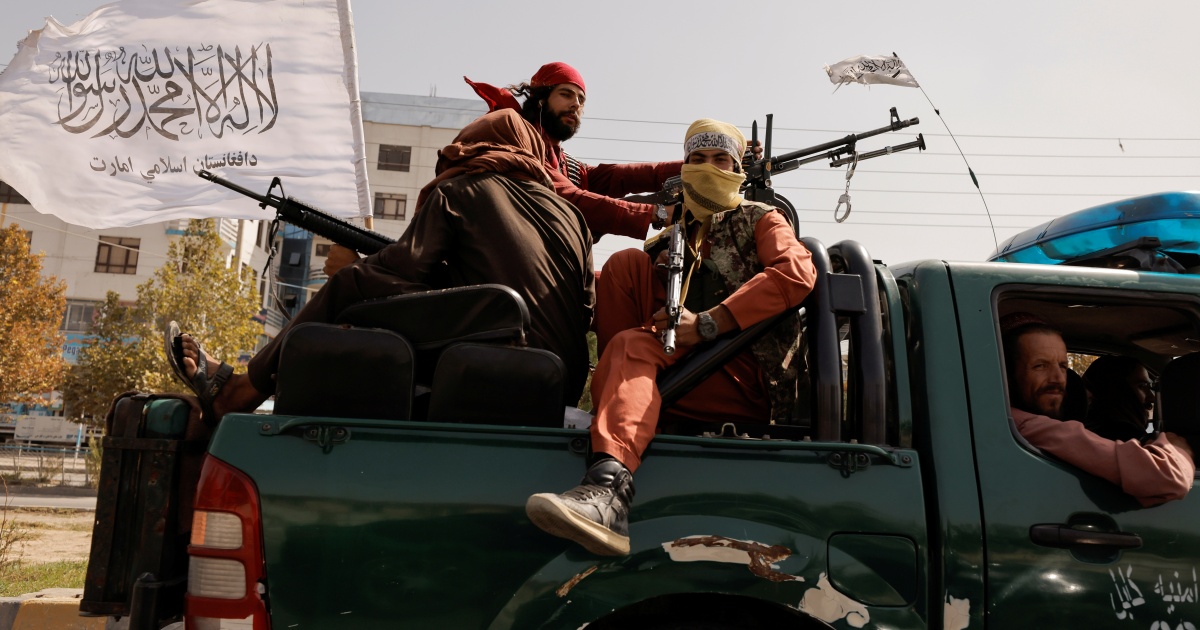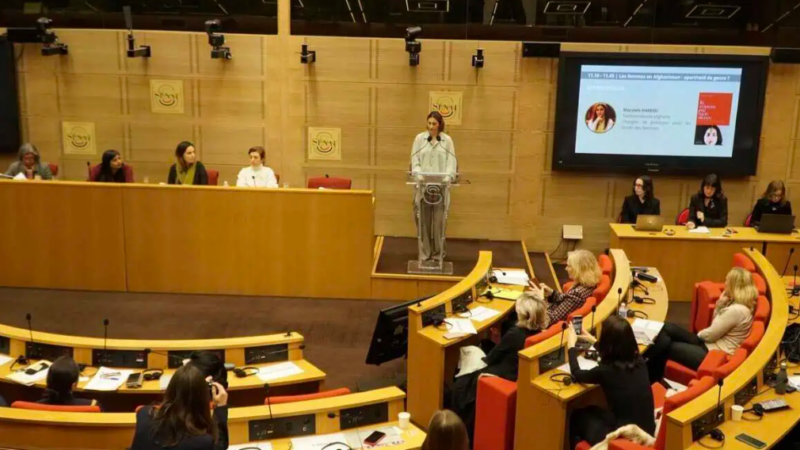Two months anniversary of Taliban in Afghanistan

KABUL, Afghanistan: Two months have completed to takeover of Afghanistan by Taliban. The Taliban government has not yet got complete recognition from the world neither do they have the access to $9 billion of county’s treasure.
And although the war-ravaged nation is continuing to plunge deeper into economic hardship with each passing day, the top brass remains firm it will not cower to external demands – such as immediate access to girls’ education which has been halted for three weeks now, or an inclusive government which is instead filled with mostly hardline Pashtuns sans women or ethnic diversity – for a straightforward reason.
“The U.S. and other countries want us to agree to several terms,” warns one high-ranking Taliban intelligence official, who requested anonymity as he is not authorized to speak to media. “But it will backfire on us; all the lower-level soldiers could then defect to the ISIS and work against us. They did all the years of Jihad to avoid this.”
Some of the most important of those terms include:
Full and equal women’s rights
Human Rights, as per international/United Nations standards
Restriction on the draconian application of Shariah (Islamic) Law, which under the Taliban’s last reign consisted of floggings, amputations, stonings and town square hangings
A comprehensive government, replete with representation from all political parties
Avoid acts of terrorism or turning blind eyes to terror plots on its soil
Taliban set up a checkpoint to block traffic coming to Eid Gah mosque where a bomb explosion set by ISIS-K happened.Jake Simkin
It is something of a self-inflicted wound. Almost all the young foot soldiers received little formal education before attending madrassas preaching hardline interpretations of Islam. Moreover, the former insurgency has long espoused that its number one goal is to remove any foreign influence, thus conceding to western demands on how to operate would likely be viewed by the deeply indoctrinated as running counter to its dominant narrative.
ISIS-K, formally termed ISIS-Khorasan to reflect the broader South Asian scope, consists of anywhere between several hundred to several thousand operatives. The group has claimed responsibility for a string of brutal attacks in recent months. It is believed to act from its stronghold in the southeast Nananghar province near the Pakistani border.
“ISIS in Afghanistan are not coming from Iraq or Syria or other places,” the source continues. “They splintered from the Taliban, wanting a (harsher) and more broad approach to Jihad. They don’t want any reconciliation with the West.”
In addition to the threat of disillusioned fighters opting to join the medieval terrorist clan for ideological reasons, the Taliban also faces the predicament that it does not pay its members salaries. By contrast, ISIS functions as a more oiled machine with salaries and foreign financing.
The intel insider also points out that their conditions for international acceptance are congruent with a “general democracy, but not Islam.” In addition, the Taliban leadership has reportedly also been instructed to conduct full background checks on its fighters to ensure no moles have infiltrated its ranks as the global terror brand seeks to undermine the Emirate’s governance and ability to ensure safety and security across the embattled nation.
And according to other high-ranking officials, they are now gunning for money from non-governmental organizations (NGOs) over governments.
“Other governments want to implement their own mythologies and thinking on the local people,” says Abdul Hakeim, Chief of Staff for the Minister of Education. “We want (schools) to run on our terms.”
While the Taliban leaders and military commanders alike often repeat the well-heeled public relations line that they desire “good relations with all countries – including the United States,” some have made it clear that if Washington and other western leaders don’t pony up on their terms, they will turn even more to Russia and China, both of which have kept their diplomatic embassies open amid the transition. In addition, Pakistan, Qatar, Turkey, Iran and Uzbekistan have also maintained their diplomatic infrastructure with the new Emirate.
Specifically, Pakistan plays a fundamental role, but it is showing more and more to be a double-edged sword. The neighboring nation is said to want more influence over the Taliban and its power structure, and Prime Minister Imran Khan has publicly called for the world to welcome the new regime on humanitarian grounds.
Yet, the extraneous clout again has triggered an internal schism among the leadership, some of whom feel an obligation and others who want complete independence from meddling.
Nonetheless, governments worldwide and the United Nations have launched or communicated an interest in establishing discussions with the new Islamic Emirate as it endeavors for financial aid. But sources within the Taliban itself caution it will only extend so far.
For now, the Taliban has held off carrying out its barbaric punishment for major crimes – including public executions for murder, the chopping of limbs for theft and stoning for adultery – as it tries to woo other governments to recognize them and, in due course, release the frozen billions – but everything has a time limit.
“We will have to start these things again soon,” the source vows. “Otherwise, we also risk soldiers defecting to ISIS.”
And while much of the 2020 Doha agreement is shrouded in secrecy and open to interpretation, the Taliban have so far indicated that they are pulling out all the stops to abide by the fundamental U.S sticking point that Afghanistan must not be used as a haven for terrorists “such as al-Qaeda” – responsible for the September 11 attacks – from planning future assaults.
According to the U.S. State Department’s briefing of the agreement, inked on February 29, 2020, with the repeated caveat that the “Islamic Emirate is not recognized by the United States as a state and known as the Taliban,” the first point is that the group “guarantees and enforcement mechanisms that will prevent the use of the soil of Afghanistan by any group or individual against the security of the United States and its allies.”
Notably, it does not state that the Taliban cannot provide refuge or work with such terrorist or insurgency individuals or outfits, providing that they do not “cooperate” with groups “threatening the security of the United States,” and “will not provide visas, passports, travel permits, or other legal documents to those who pose a threat to the security of the United States and its allies to enter Afghanistan.”
“Al Qaeda still exists, but they know they cannot make any military movements,” the source explains. “Their guns have been taken away. If they make any movements, the Taliban has been instructed to go after them.”
As per the source, Al Qaeda loyalists typically enter Afghanistan “as refugees from Pakistan” and live mainly in and around porous border areas.
However, with a total U.S. troop withdrawal – including the shuttering of the U.S embassy in August – Washington is now also without the intelligence capabilities it relied on for the past two decades. Moreover, the Taliban itself – except for a rare few of its younger recruits who told us that Jihad also meant serving other rebel causes in places such as Syria and Myanmar – the Taliban’s top brass have it clear that their interests lie only within Afghanistan, and maintaining its independence from a foreign footprint and upholding their interpretation of Islamic Law.
Instead, the Taliban has accused the United States of violating its terms of the Doha arrangement by keeping Sirrajudin Haqqani – its new interior minister – on the designated terrorist list, with a $5 million bounty on his head. Sirrajudin, a leader in the Haqqani Network, stands accused of numerous attacks on U.S. forces operating inside Afghanistan throughout the protracted conflict. Others in the senior echelon, including acting Prime Minister Mullah Mohammad Hassan Akhund, are also on international blacklists.
The 2020 Doha deal is said to have included Washington’s pledge to remove Taliban members from global sanctions.
But if the Taliban has to choose between international acceptance or enforcing its own hardline views, the top intelligence source asserts the decision has already been made.
“We will pick our way,” he adds. “We don’t want to deal with our people joining ISIS.”






